Decathlon is taking aim at cycling's biggest brands with Van Rysel - and it's making pro bikes more affordable along the way
Decathlon’s move up-market with Van Rysel is good news for road cyclists
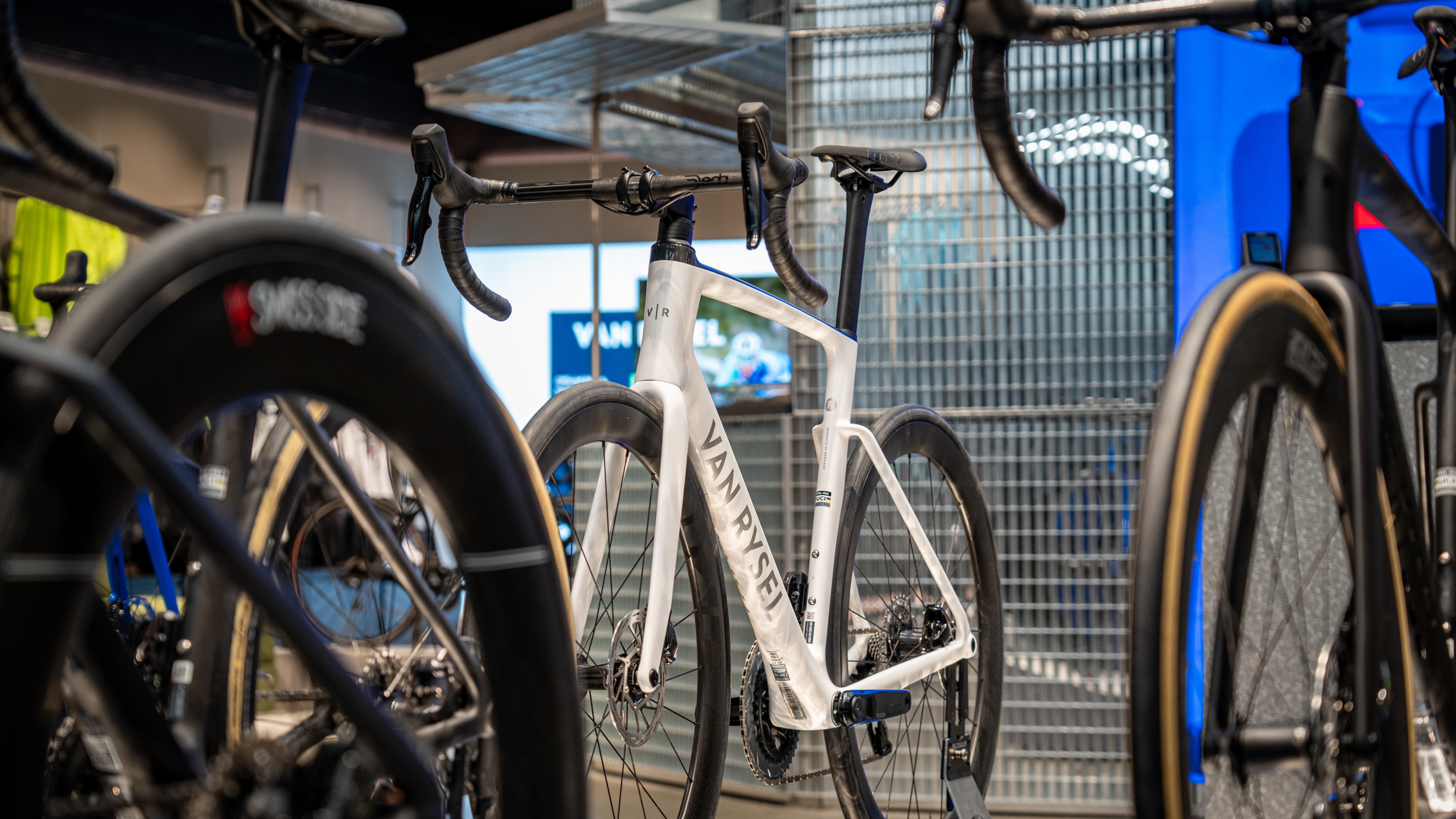
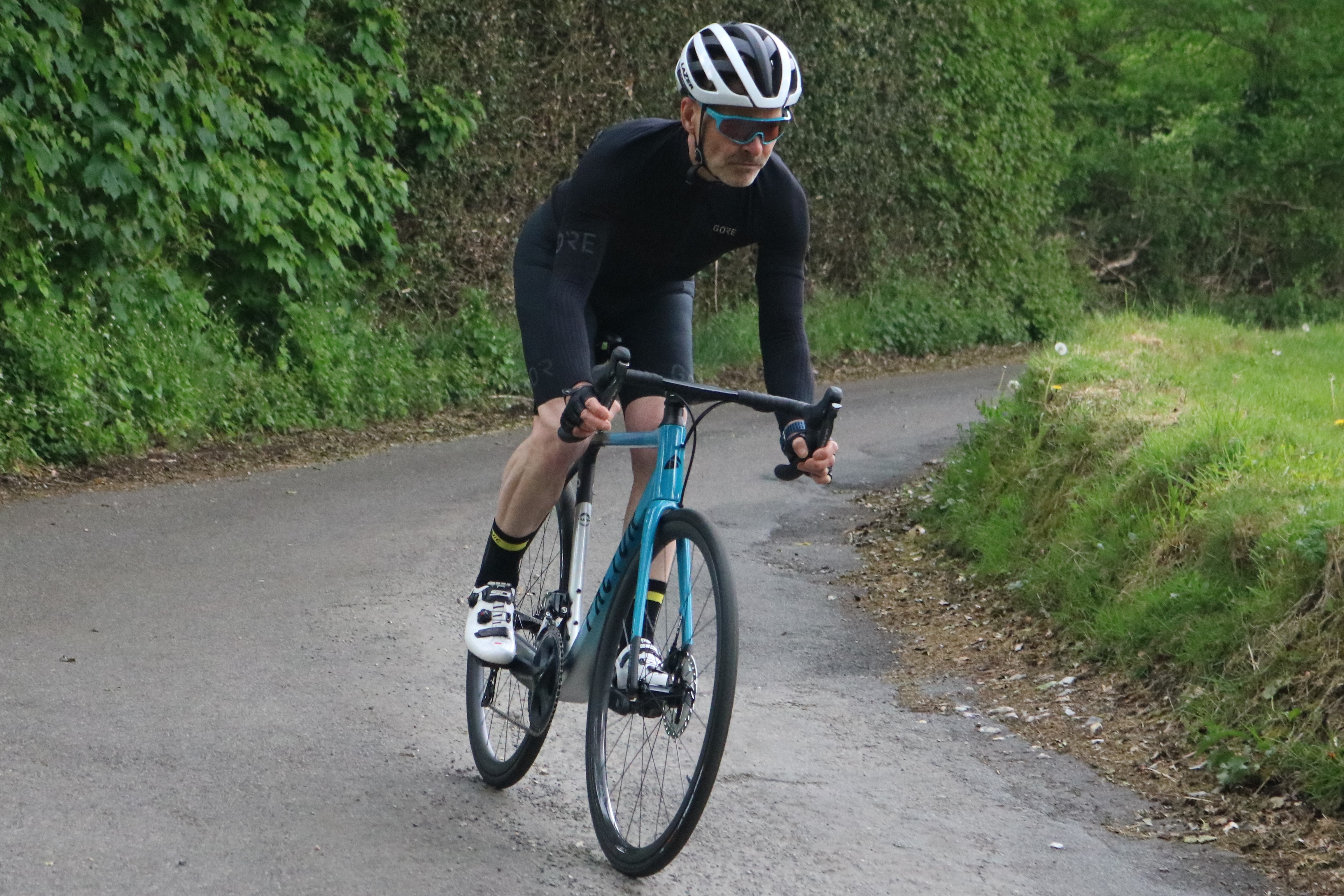
With its affordable prices and quality specs - previously marketed under the Triban umbrella - Decathlon has a big presence in the value end of the road bike market. So why has the French sporting superstore chain launched the RCR Pro, a £9,000, 6.9kg aero/lightweight superbike pitched at the premium end of the market?
Maxime Delabre, chief marketing officer for Van Rysel puts it simply. While cyclists might choose one of Decathlon’s bikes as a first road bike, as they develop and want to upgrade their ride, they’re looking to other brands. Decathlon wants that to stop.
“The truth is that at one point, when you’re really into road cycling, you are going somewhere else. We want not only to help enthusiasts to learn to ride, but to get alongside them until the end of their experience,” he says.
Van Rysel’s aim is to offer bikes that are the best in class at all levels, so they can stop being the feeder brand to their competitors; it’s a business strategy that makes sense, and one that Decathlon has gone all-in on.
Asked how the brand is able to meet price points below its competitors, chief product officer Yann Le Fraillec told Cycling Weekly in April: “It is the right price for this bike... we are not cheating the customer. This is what we consider a fair price for people to enjoy the thrill of speed.”
Supporting the headline-grabbing RCR Pro, which is also available equipped with Ultegra from £5,500, Van Rysel is offering a range of race bikes at specs and price points to satisfy those for whom even an ‘affordable’ - read: still very expensive, owing to being a WorldTour machine - pro bike is beyond their aspirations.
While the RCR Pro frame weighs a claimed 790g and is made using high modulus carbon fiber, the non-Pro RCR has a lower priced carbon lay-up and adds around 80g to that but retains the same aero frame profile.
Get The Leadout Newsletter
The latest race content, interviews, features, reviews and expert buying guides, direct to your inbox!
That still puts the £4,500 RCR bike equipped with SRAM Rival and Zipp 303s wheels - which we rode when we visited Van Rysel in Lille, France - around the 8.1kg mark, according to the brand.
How ‘affordable’ are Van Rysel’s bikes?
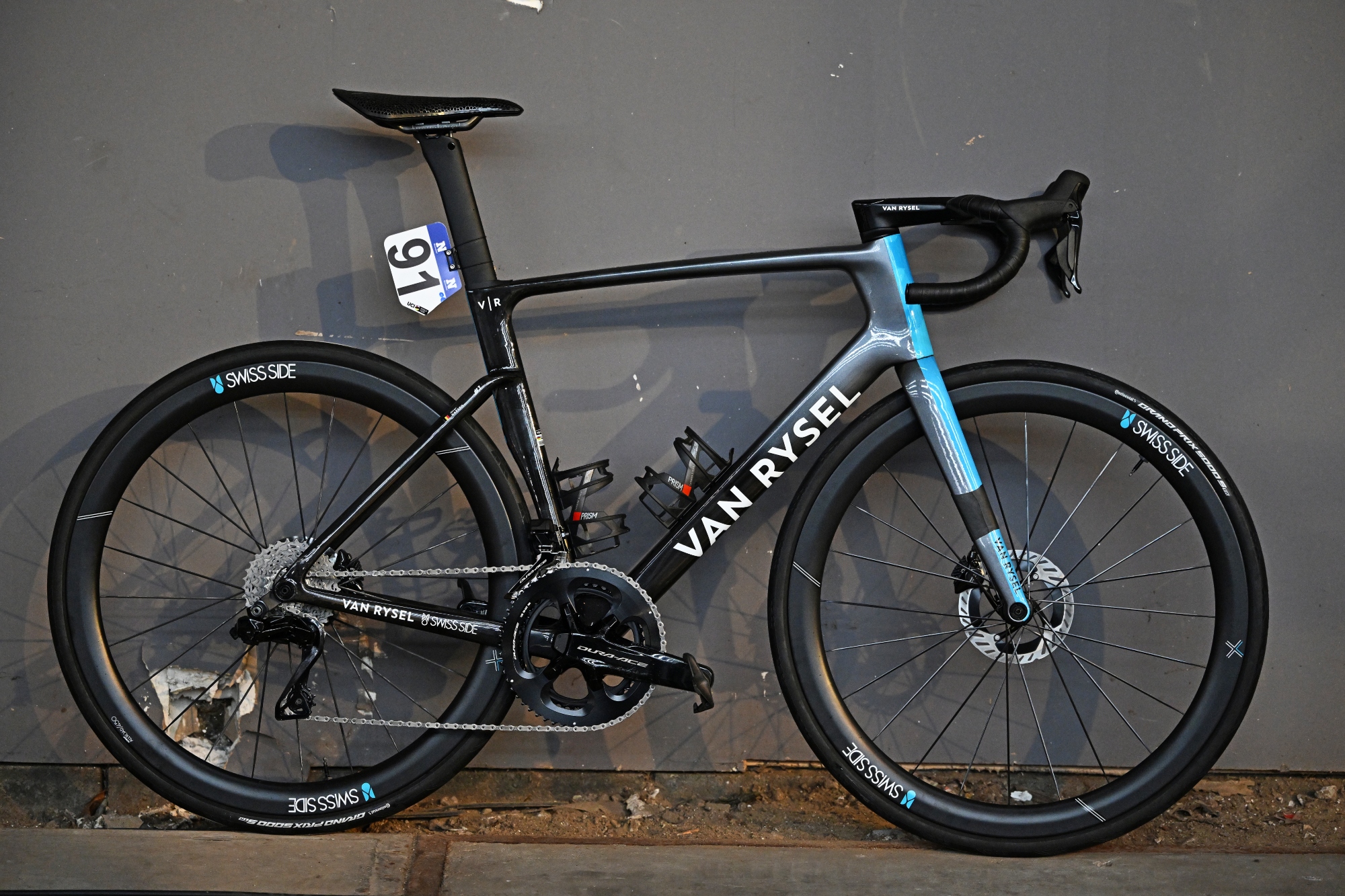
At £9,000, the top spec Van Rysel RCR Pro, equipped with Shimano Dura-Ace and SwissSide Hadron2 500 Ultimat wheels is the same build as ridden by the pros, with a 6.9kg claimed weight.
Yes, it's still very expensive. But, it's a WorldTour bike, and these cost a lot more elsewhere.
If you wanted a similar spec Specialized Tarmac SL8, you’d be looking at £12,000. Specialized’s claimed weight is a little lower at 6.6kg.
The Giant Propel Advanced SL aero/lightweight bike would also set you back £12,000. Giant doesn’t quote bike weights.
Canyon’s nearest competitor in the aero/lightweight category is the Ultimate CFR Di2. It’s priced at £9,500, but with its 24mm deep DT Swiss Mon Chasserai wheels has a claimed weight of just 6.2kg.
Move down to Ultegra specced bikes and the Van Rysel RCR Pro costs £6,500. Specialized’s equivalent is priced at £8,000, Giant’s at £9,000. With Canyon, you’d need to step down to the CF SLX grade frame, with the Ultimate CF SLX 8 Di2 priced at £6,200.
We rode the (non-Pro frame) RCR with SRAM Rival, priced at £4,500. Specialized charges £6,000 for the Rival-equipped Tarmac SL8 Expert and Giant £5,500 for the Propel Advanced Pro 1. At Canyon, the Rival-equipped Ultimate CF SL has the third tier CF grade frame and alloy wheels, but is priced at £3,500, although currently marked down to under £3,000.
There’s a parallel endurance range, named EDR. The current top spec EDR bike is equipped with 11-speed Shimano Ultegra and Fulcrum Racing 3 wheels, has a claimed weight of 7.7kg with an 890g frame and retails for £3,000.
Van Rysel promises a stream of new bikes throughout 2024 and 2025, with eight new models planned as it completes its line-up.
From a team of ten when it was established in 2019, Van Rysel has grown to a business unit of around 100 within Decathlon. Delabre says that it’s one of the few cycling brands that has the expertise to develop its own carbon lay-ups for its frames, a process that’s usually subcontracted to the framebuilder.
It works with a factory in Vietnam, which manufactures the frames to its specifications, while assembly takes place on five production lines at the Decathlon site in Lille.
The Flanders factor
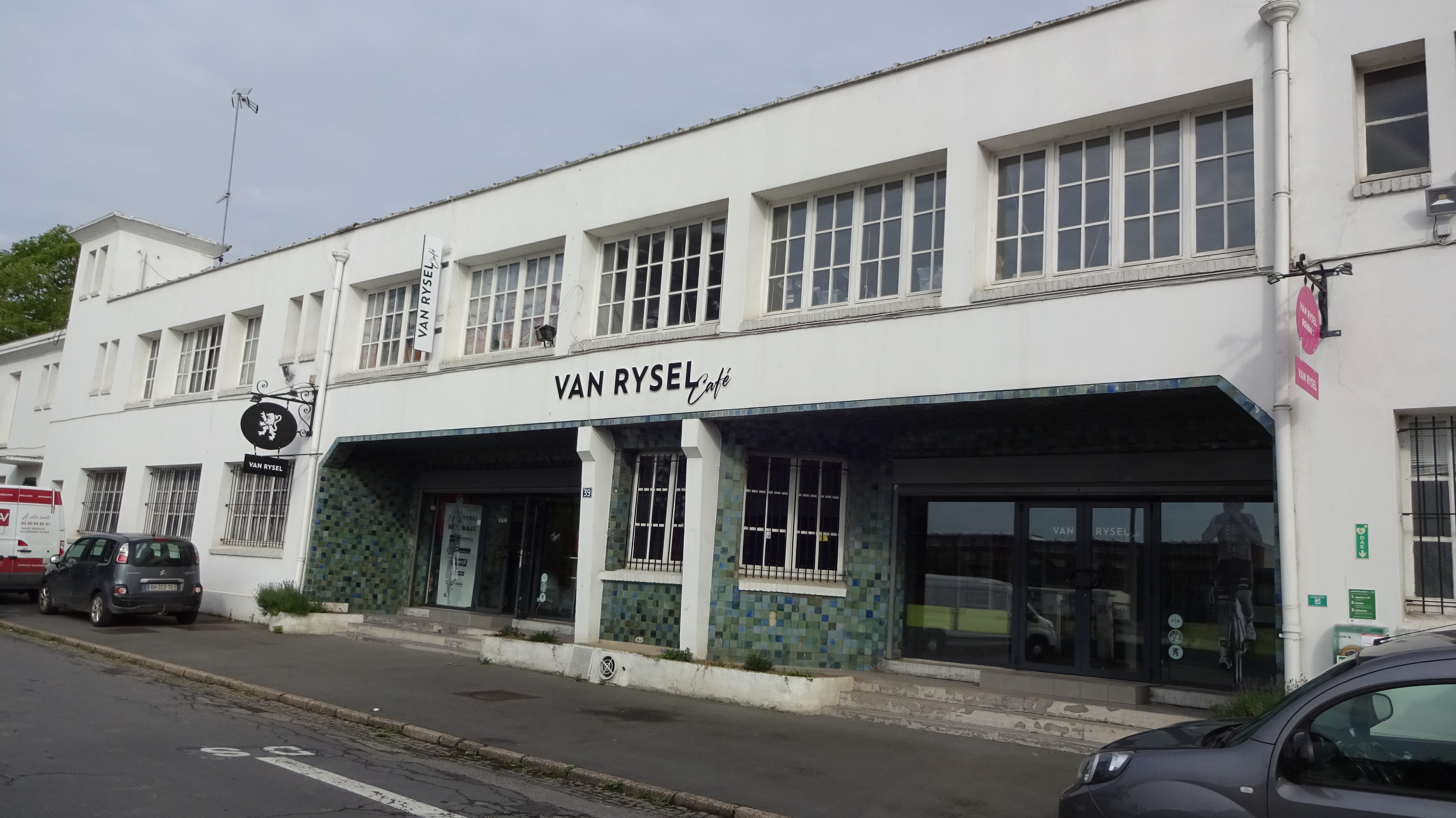
The Van Rysel Café is directly opposite the riders' entrance to the Roubaix velodrome
Rysel is the West Flemish for Lille, where Van Rysel and Decathlon are based. It’s only a 5 mile/8km drive from Decathlon’s immense headquarters building to the Roubaix Velodrome, one of cycling’s landmarks. Van Rysel has fully embraced its flandrian heritage.
Opposite the entrance to the famous velodrome, there’s the Van Rysel café, loaded with eponymous clothing and merchandise. It’s in a prime position to serve as a backdrop to television coverage of the riders as they enter the velodrome at the end of Paris-Roubaix.
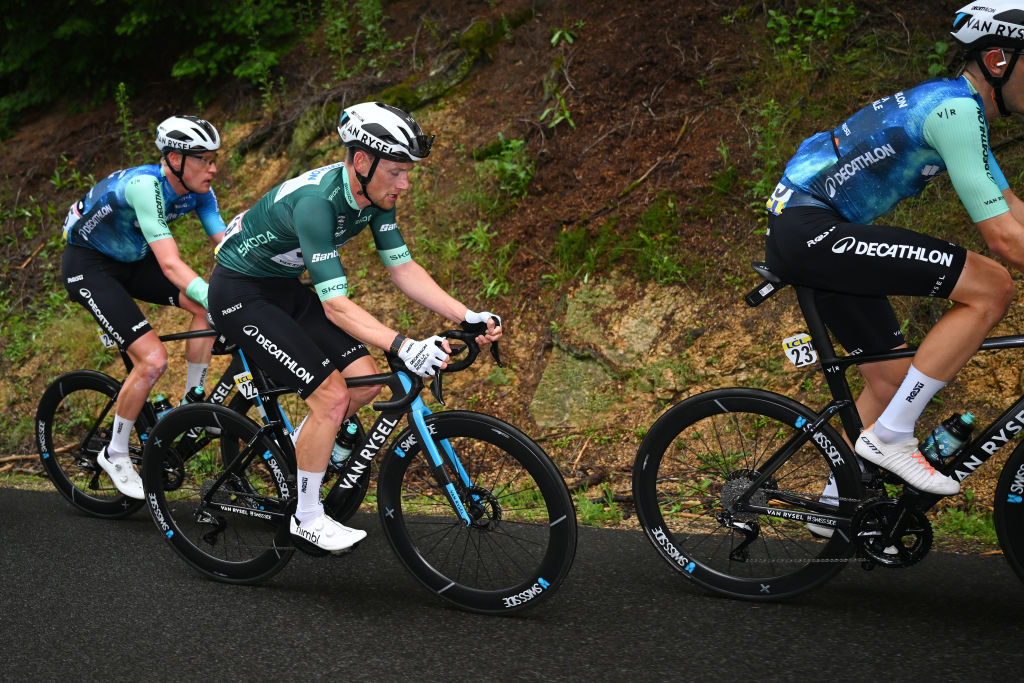
Decathlon AG2R La Mondiale Team during stage 2 of the Criterium du Dauphine 2024, with Sam Bennett in the points jersey
But it’s the immediate success in 2024 of its sponsored Decathlon-AG2R WorldTour team riding the Van Rysel RCR Pro that has been most conspicuous.
For the team, it was a step in the dark to work with Van Rysel, a brand which didn’t even have a production bike to its name when sponsorship discussions started.
But from a ranking that in previous years has been consistently in the mid-teens among the 18 WorldTour teams, according to Pro Cycling Stats, in 2024 Decathlon-AG2R has climbed to third by its number of wins to the start of June. That includes two of the 15 stages at the 2024 Giro d’Italia not won by Tadej Pogačar.
Delabre is quick to note that the team’s new-found racing success isn’t just about the bike, but also a new vision and the confidence generated by Decathlon’s five-year sponsorship deal. He hints at more headline-grabbing equipment to be rolled out to the pros in the coming months.
“Right now, some of our team are with Decathlon-AG2R riders to test our next products,” he says. “This is a very important part of our partnership. It’s a daily relationship and we also work with individual pros on development of specific products.”
Store within a store

Van Rysel is opening a string of stores within Decathlon sites
Of course, establishing a performance cycling brand isn’t just about pro wins and halo bikes, it also requires the customer experience and the range and prices to back it up. Here, Van Rysel is leveraging the global presence of its parent, establishing store-within-store locations worldwide.
“The objective for us was to have a better environment to showcase the products, to offer personalized services to our customers and help them feel more connected to Van Rysel,” says Delabre.
The first Van Rysel store has already opened in Decathlon’s huge site in Surrey Quays in London, with CW’s Adam Becket attending the ribbon-cutting event. It displays Van Rysel’s bike range in a setting with a flandrian theme and a welcome desk inspired by the showers at the Roubaix velodrome. As well as displaying the bike range, the Van Rysel store offers bike fitting and other services.
There’s the whole range of Van Rysel equipment too, from helmets, glasses and clothing to smart trainers and cycling computers. Delabre points out that Van Rysel is one of the few cycling brands to offer a complete range of its own cycling equipment.
Van Rysel will open additional stores at Decathlon sites. Berlin and the on-site store at its Lille headquarters, the largest sporting goods store in Europe and the size of 14 football pitches, are next on the list.
Decathlon’s aim is to position Van Rysel as one of the top five cycling brands worldwide.
“We’re working to ensure brand awareness and volume, but realize that there’s a long path until we reach there,” says Delabre.
With its quality bikes, competitive pricing and canny marketing it looks well set to achieve that goal and disrupt the road cycling market to boot, which can only be good news for consumers.
From Roubaix to Lille on the Van Rysel RCR
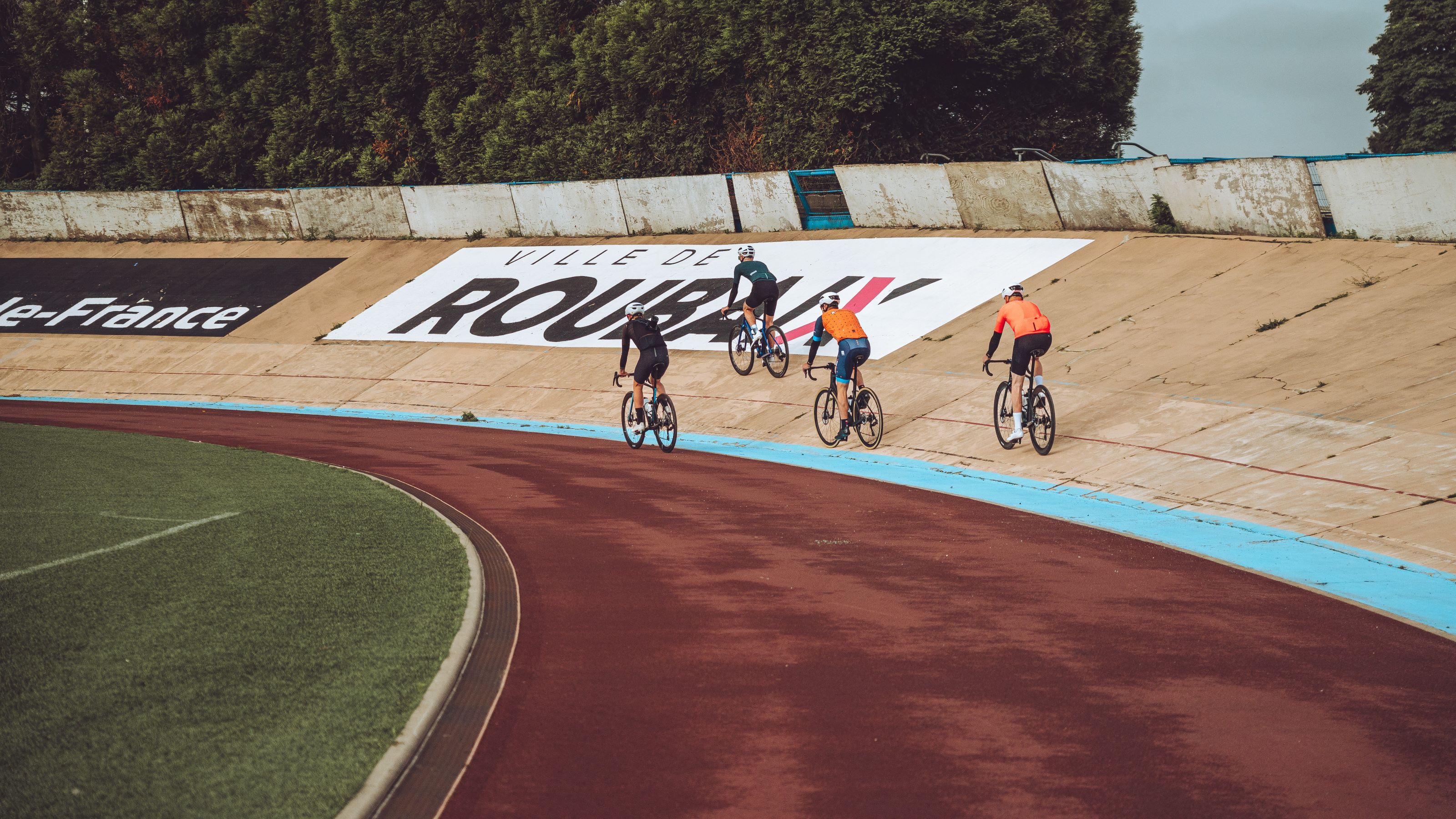
We rode laps of the Roubaix velodrome before heading out on a loop back to Lille
We rode the £4,500 Van Rysel RCR (with the lower grade carbon frame), from the Roubaix Velodrome to the Decathlon HQ in Lille. Equipped with SRAM Rival AXS with an in-series single sided power meter and Zipp 303s wheels, Van Rysel claims an 8.1kg weight.
Starting with a few laps of the velodrome (and a tour of the iconic showers), we headed out on a 50km loop south, which took in the short-but-initially-vicious two star Secteur 8 of the Paris-Roubaix parcours, Moulin de Vertain.
With no real hills and only 145m of ascent, it’s difficult to draw conclusions on the bike’s ride, particularly as, bar the cobbles, the road surfaces – even riding through roadworks where the surface had been removed prior to resurfacing – were considerably smoother than any back home.
But the ride does feel both fast and comfortable, and the position not unduly aggressive for the non-pro rider. Tackling the cobbles, the handling didn’t feel nervy, even if the initial section of rougher cobbles was bone-shakingly jittery. The second half of Secteur 8 was less demanding, with sand and dry mud covering the cobbles for a more typical all-road ride.
Look out for our full review of the top spec Van Rysel RCR Pro, online soon, or buy Cycling Weekly magazine out on 6 June to see it featured within our Bike of the Year test.

Thank you for reading 20 articles this month* Join now for unlimited access
Enjoy your first month for just £1 / $1 / €1
*Read 5 free articles per month without a subscription

Join now for unlimited access
Try first month for just £1 / $1 / €1
Paul started writing for Cycling Weekly in 2015, covering cycling tech, new bikes and product testing. Since then, he’s reviewed hundreds of bikes and thousands of other pieces of cycling equipment for the magazine and the Cycling Weekly website.
He’s been cycling for a lot longer than that though and his travels by bike have taken him all around Europe and to California. He’s been riding gravel since before gravel bikes existed too, riding a cyclocross bike through the Chilterns and along the South Downs.
-
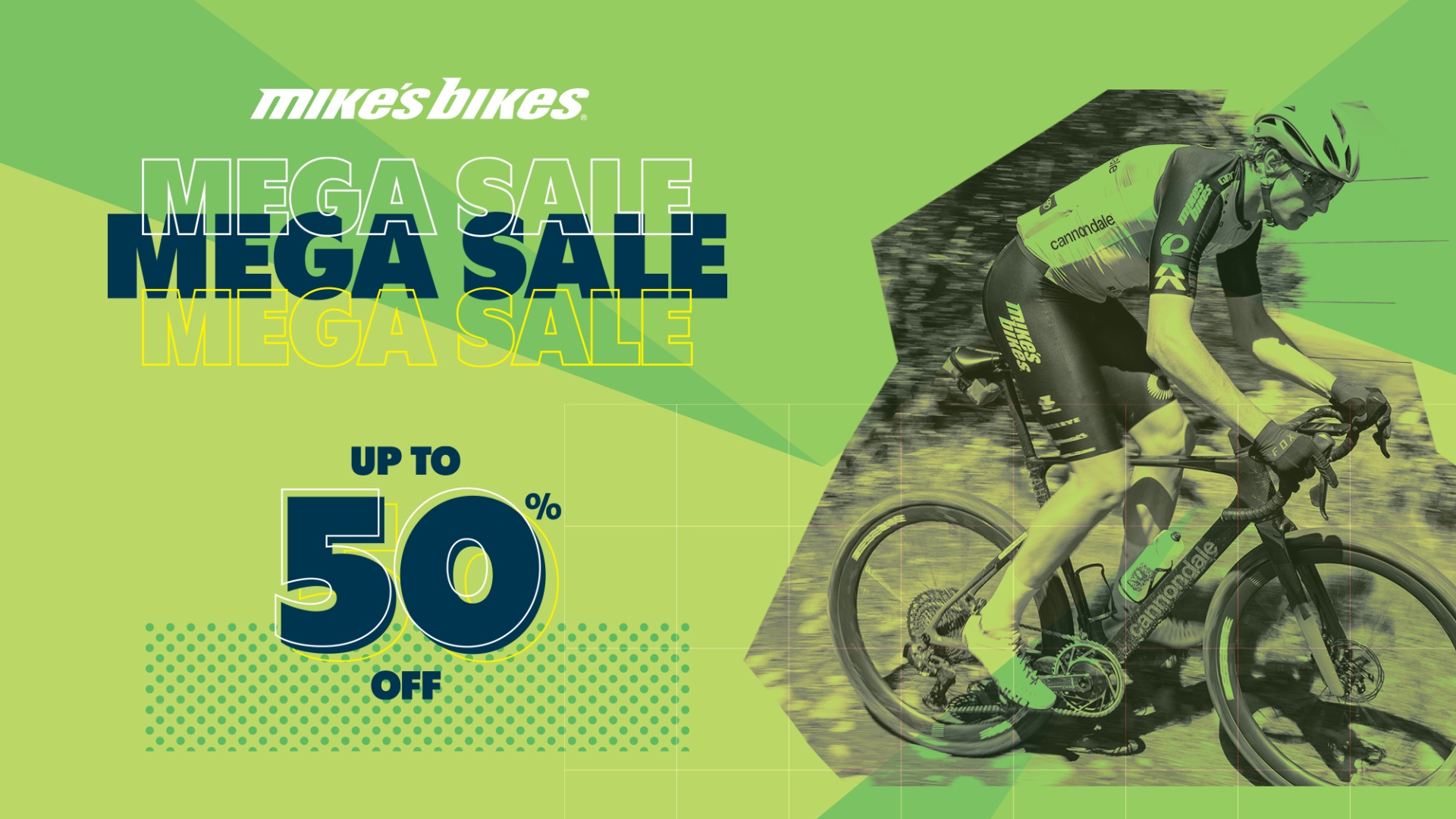 Mike's Bikes 'mega sale' is live and site wide with discounts over 50%
Mike's Bikes 'mega sale' is live and site wide with discounts over 50%Running until Sunday all products are discounted including complete bikes, clothing, smart trainers and much more
By Luke Friend
-
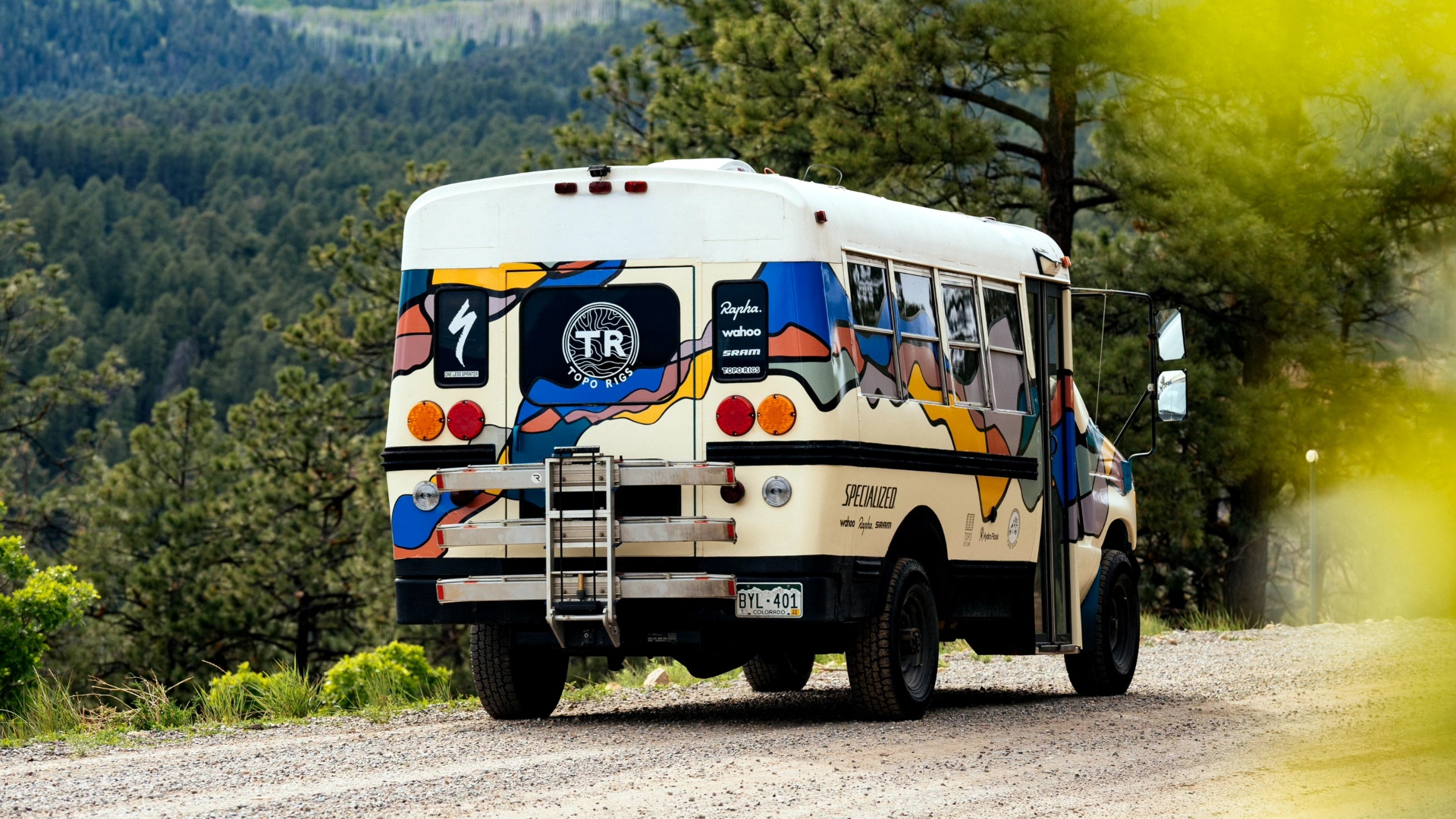 Can you be a pro athlete and an environmentalist? Earth Day reflections from a pro cyclist trying to be both
Can you be a pro athlete and an environmentalist? Earth Day reflections from a pro cyclist trying to be bothHow Sarah Sturm reconciles her life as a pro cyclist with her environmental values
By Sarah Sturm